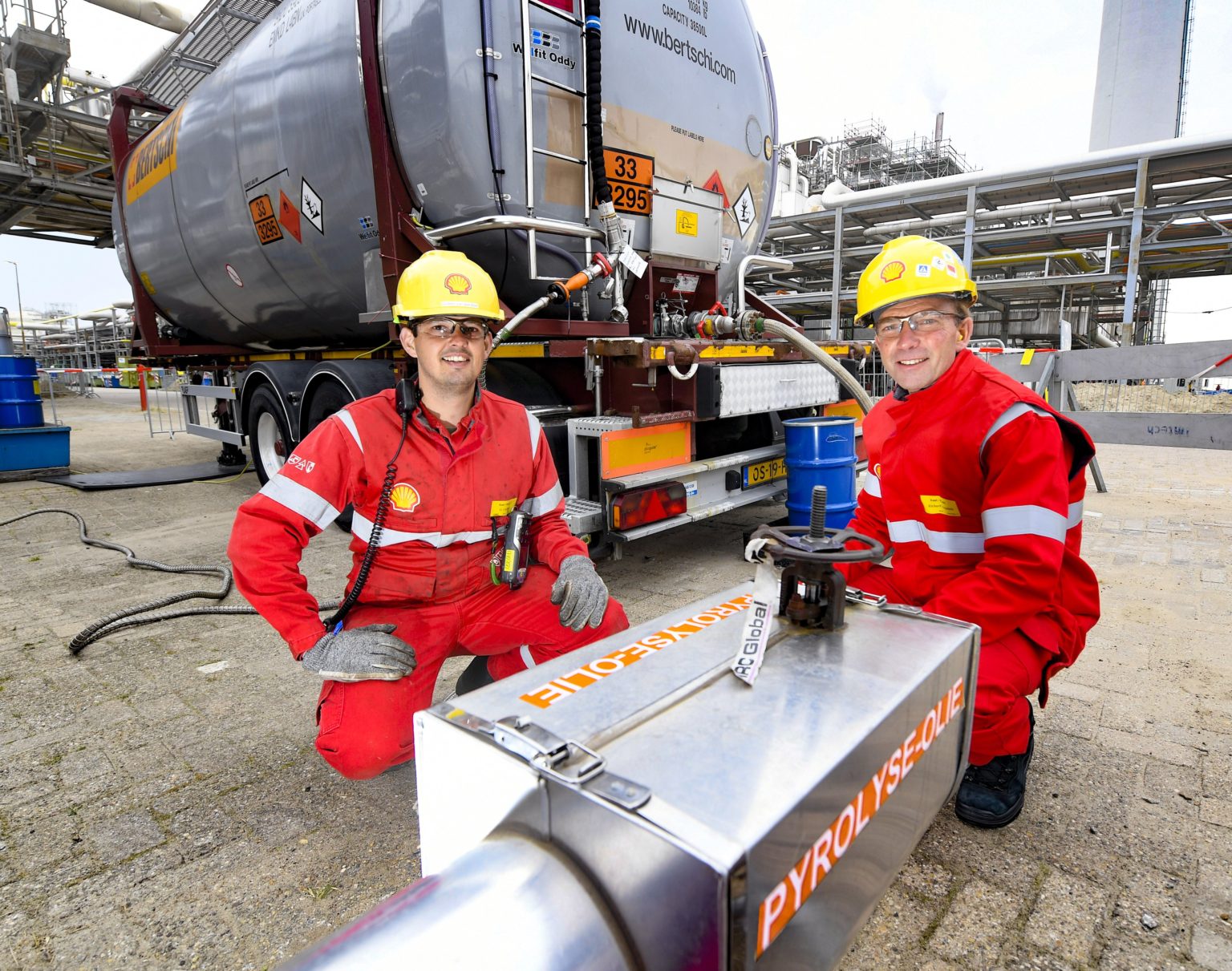
Shell Moerdijk voedt kraker met pyrolyesolie

General Manager Richard Zwinkels (r.) en operator Gerben van den Doel bij de tank met pyrolyseolie. (Foto: Shell)
Bij Shell Moerdijk is een kraker gevoed met pyrolyseolie. Dit bleek succesvol, aldus het bedrijf.
Normaal gesproken bestaat de grondstof voor deze kraker bij Shell Moerdijk uit fossiele producten, zoals nafta, LPG en hydrowax. Begin deze maand bleek ook een ‘voeding’ succesvol met pyrolyseolie, gemaakt uit circulair plastic.
Pyrolyseolie
Shell Moerdijk verwacht in de toekomst steeds meer pyrolyseolie in de kraker te kunnen verwerken. Dit helpt de technologie voor het moeilijk te verwerken plastic vooruit en ook denkt Shell Moerdijk hiermee aan de groeiende vraag naar duurzame chemicaliën te voldoen.
Investering
Na de investering in het plasticrecyclingbedrijf Blue Alp is dit volgens Shell ‘een volgende stap’. Vorige maand maakte Shell bekend een belang te nemen in BlueAlp. Deze plasticrecycler maakt pyrolyseolie uit plastic afval.
Zie ook: Shell investeert in plasticrecycler
English translation
Shell Moerdijk feeds cracker with pyrolysis oil
A cracker at Shell Moerdijk has been fed with pyrolysis oil. This proved successful, according to the company.
Normally, the raw material for this cracker at Shell Moerdijk consists of fossil products, such as naphtha, LPG and hydrofax. Earlier this month, a ‘feed’ with pyrolysis oil, made from circular plastic, also proved successful.
Pyrolysis oil
Shell Moerdijk expects to be able to process more and more pyrolysis oil in the cracker in the future. This will help to advance the technology for plastic, which is difficult to process, and Shell Moerdijk also thinks that this will help to meet the growing demand for sustainable chemicals.
Investment
After the investment in the plastic recycling company Blue Alp, this is ‘a next step’, according to Shell. Last month Shell announced that it had acquired an interest in BlueAlp. This plastic recycler makes pyrolysis oil from plastic waste.









